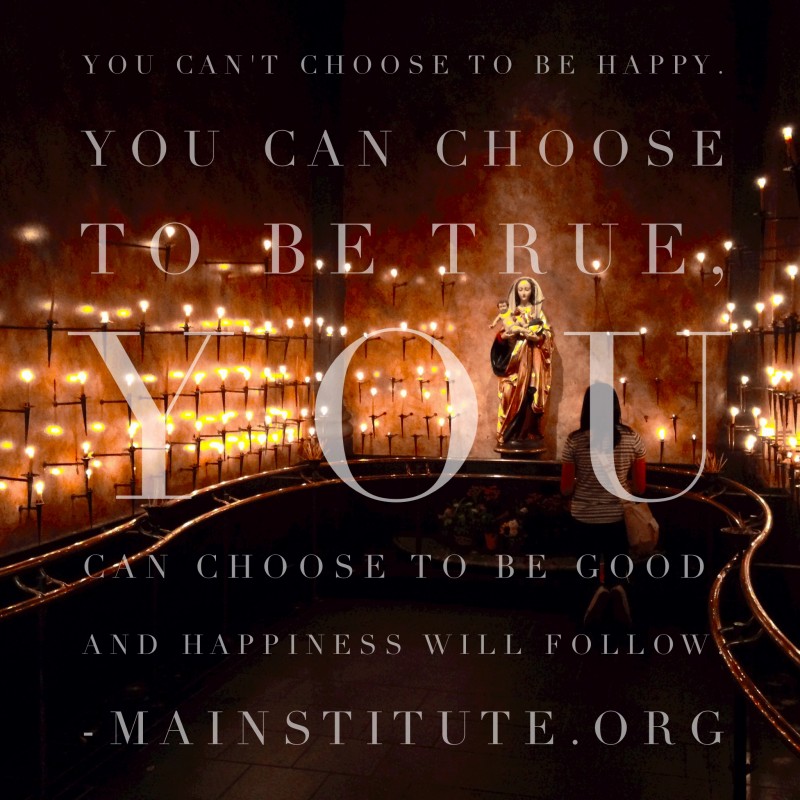…you can only choose to be true and to be good…and to the degree you succeed, you will find happiness.

The ancient view of happiness held it to be a fickle characteristic of fate. This can be gleaned from the etymology of the term, the root of which is hap, a Middle English word meaning “chance,” “fate,” or “luck.” Recently, psychologists have begun to dispute this old presupposition. In fact, many are now telling us that we can choose to be happy. While this claim detects the importance of one’s will in one’s emotional state, it is not true that we can choose happiness as an end; we cannot directly will our happiness.
Why is this so? The short answer is that we cannot directly change our emotions or appetites by simply willing them to change. They have a certain autonomy from the rational faculties (the intellect and will); a fact to which anyone can attest who has tried to go on a diet, struggled to overcome a bad habit or attempted to forgive someone who has deeply hurt us or someone we love.
Yet, while one’s will cannot immediately control his emotions, our reason can indirectly train our appetites and emotions to subordinate themselves to the intellect and will. This is what we call building character, developing self-mastery and cultivating virtue. So the will is indeed involved in our happiness, but it is not simply a matter of willing ourselves happiness.
The will’s role is, with the intellect, always to choose rightly in order to keep our emotions from mastering us and so mastering our lives. However, there is another reason we cannot directly choose happiness if we want to be happy.
To understand why begins with a definition of happiness. Happiness is the natural fruit of acting in truth and goodness or, in other words, always choosing rightly. The key here is the term “fruit.” No fruit can be directly chosen. An emotional fruit’s tantalean quality is revealed to us when we reach for it. It seems to evaporate in our hand just as we close our grasp upon it.
Fruits are like gifts, they cease “to be” when they are taken rather than thankfully received. Another way of saying this is that if we treat something that is a fruit, in our case, happiness, and pursue it as if it were an end then we damage and even destroy the possibility of the fruit ever arising. Fruits arise from achieving authentic ends and then they must be thankfully, humbly received. The authentic ends which lead to happiness fall into the category of being true and good.
What does it mean to be true and good? This is easy. Being true and good means to will and act in accord with the way God made us. In fact, while psychologists don’t understand it in this way, when they describe how to choose happiness they identify such things as forgiveness of others and cultivating an attitude of gratitudeas keys to being happy. Natural happiness is the fruit of following the Ten Commandments (and all they imply: see the Catechism of the Catholic Church’s third pillar for more on this). To experience supernatural happiness, which we might call joy, we must embrace and fully live the Beatitudes in a state of grace...we must become holy. We have to love like Christ loved. Joy is the only experience of happiness that can ultimately satisfy us. Only in joy can we find the rest for which our souls long. But this joy is a fruit of an end—loving like Christ; it is to be found in taking up our Cross.




